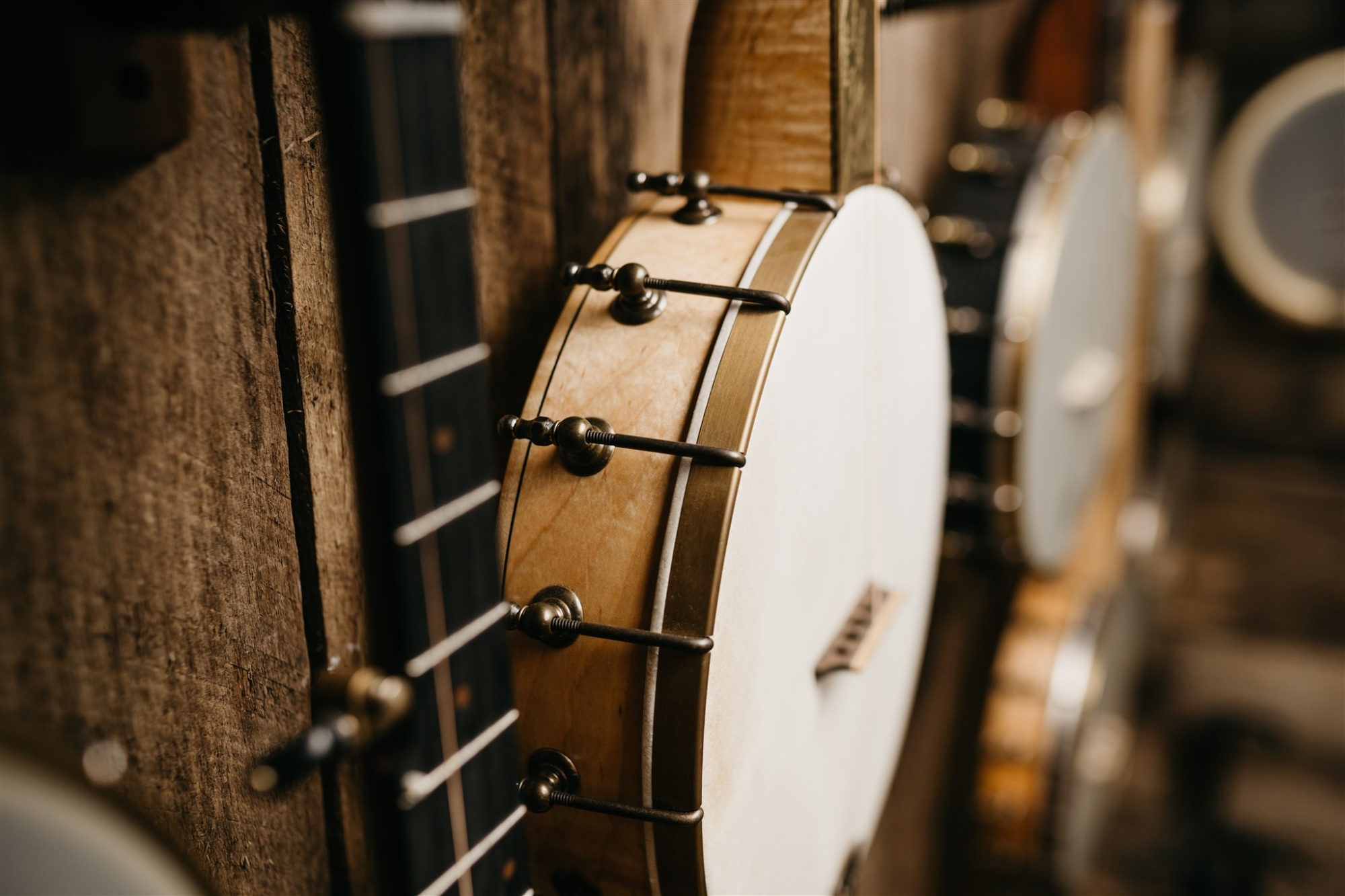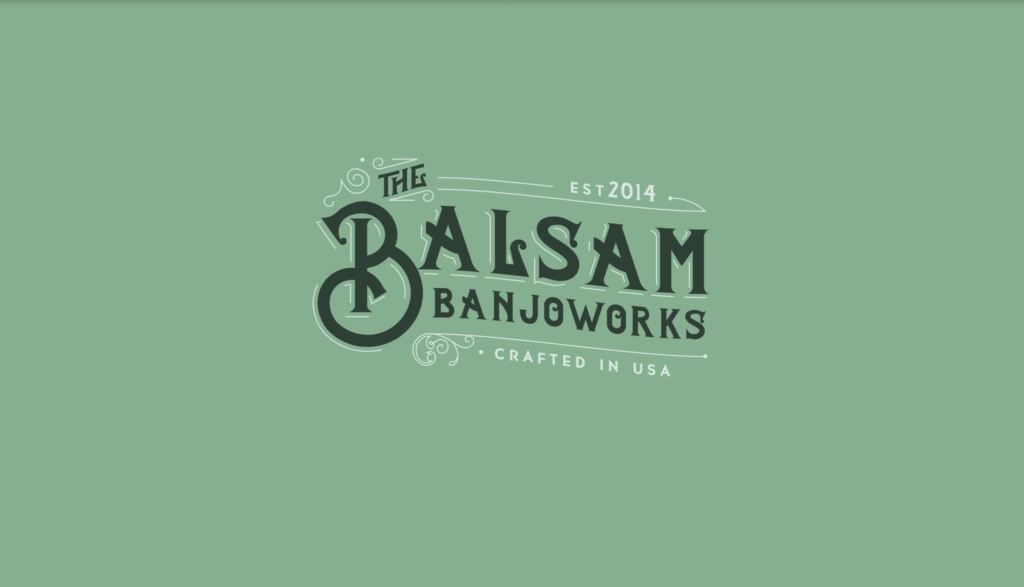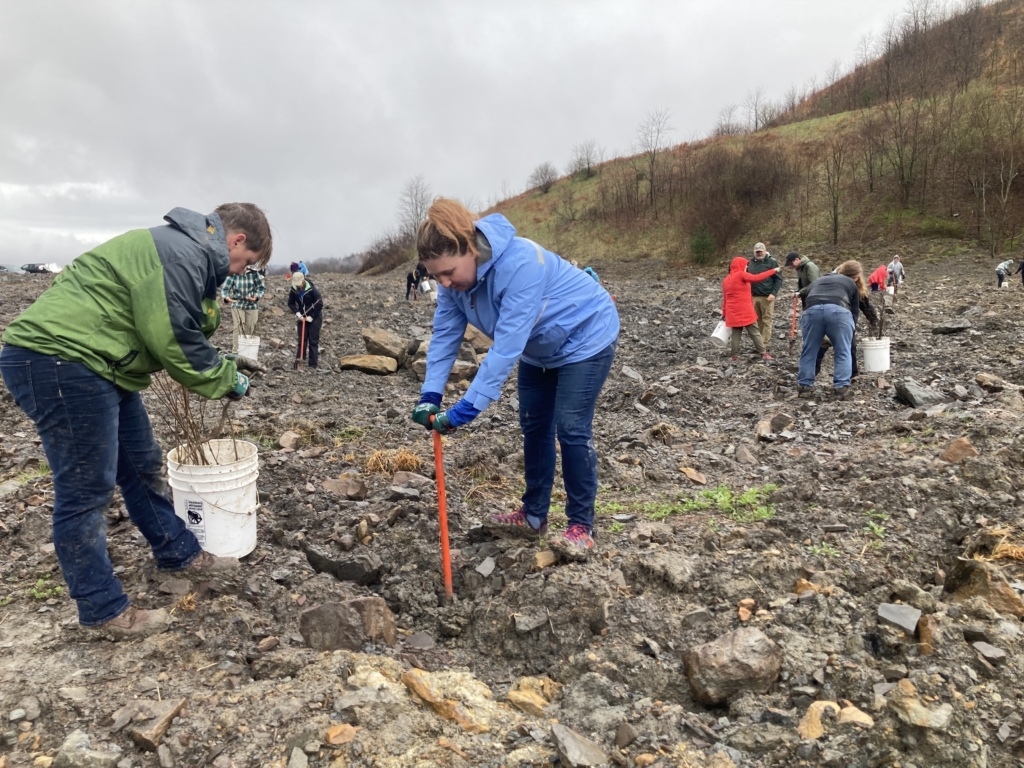
Written By:Brent Davis
Photo by Andy Wickstrom
This article was originally published in the Bluegrass Standard Feb. 1 2025. Brent and Patrick met at the 2024 Banjo Gathering in Lansing MI. Here is a Link to the originally published article.
Pisgah Banjo Company not only takes its name from a national forest in Appalachia but also sources the wood for its instruments from the trees growing in and around its base near Asheville, N.C. Unlike other banjo makers, it uses native woods, including persimmon, cherry, and maple, instead of exotic hardwoods such as ebony. In nearly 12 years, it has become the largest supplier of boutique open-back banjos in the nation.
“I pretty much found very early on that people didn’t necessarily care about an ebony fingerboard,” says luthier Patrick David Sawyer, the owner of Pisgah Banjos. “They cared about the sustainability aspect. And so that’s what I went with. That’s what my schooling was focusing on. How local can we source parts? How local can we source hardwoods?
If Sawyer’s approach to banjo building is unorthodox, so has been his journey. He began college as a classical and jazz trombone performance major at Appalachian State University in Boone, N.C., which is close to where he grew up.
“I took an intro to Appalachian Studies class as an elective, and we focused on music for a couple of weeks, and I was just blown away,” Sawyer recalls. “I was like, ‘What am I doing with myself? You know, there’s this whole other world of music.’ Interestingly enough, my roommate at the time had a banjo, and I started picking around on it just a little bit. I was like, ‘This is fascinating. This is amazing.’”
Sawyer built his first banjo in 2005 during his sophomore year in college. He’d had some experience in a wood shop with his dad, who was an amateur woodworker.
“And I was probably more interested in building banjos at the time than my studies. I took independent study classes in the woodworking department just so I could have access to the shop. And so that’s kind of how it started. I ended up being a geography major and having a minor in renewable energy. My idea was I could be a planner for a sustainable community. I always had sustainability in mind. It was just a marriage of my interest in sustainability and my interest in working with my hands and woodworking.”
After graduating in 2008, Sawyer spent six months as a student host at the John C. Campbell Folk School and then hiked the Appalachian Trail. After working as a solar technician for several years, he started Pisgah Banjo in 2012. The company has nine employees and makes a little over 500 instruments a year.
“We’re focusing on the mid-to-high-end range instruments in terms of what we offer,” Sawyer explains. “We have 11 or 12 models, but we can customize them pretty much any way you want to. And we also have a design tool on our website. You can click and basically build a banjo from scratch, and it automatically shoots out a quote. You can build it as fancy or as inexpensively, barebones as possible. So our prices range from about $1,500 all the way up to–if you get the custom features and pull out all the stops–currently, it’s like $3,000.”
Every small business owner faces setbacks, but like many people in the path of Hurricane Helene, Sawyer has had to deal with unanticipated and unprecedented challenges.
“We were able to get back up and running pretty quickly after the storm,” Sawyer said during an interview a little more than a month after Helen ravaged parts of North Carolina and the Southeast. “We were one of the few businesses to actually offer work back to employees. Because we have a well, we’re not reliant on city water. But a lot of our employees still don’t have their basic needs met. And so we’re not back to our capacity because of that. We still have employees that have to go somewhere else, like a FEMA site, to take a shower or wash their clothes because there’s just too much silt in the water.
“It’s kind of hard to go back to work when your neighbors and your friends and other businesses have nothing to go back to. So we’re doing whatever we can to help other folks. So, the whole event was very jarring.”
Sawyer’s love for North Carolina and the Asheville area is evident as he talks about the natural resources and the vibrant sense of community there. So it’s no surprise he named his banjo company after one of the local landmarks.
“We’re adjacent to Pisgah National Forest. So, I wanted to name it after the forest because we use native Appalachian hardwoods and because of my love of hiking. I love hiking in Pisgah. I grew up hiking in Pisgah. I grew up an hour from here. I go to Pisgah National Forest all the time and hike around. So, it just checked a lot of boxes. It made a lot of sense.”








